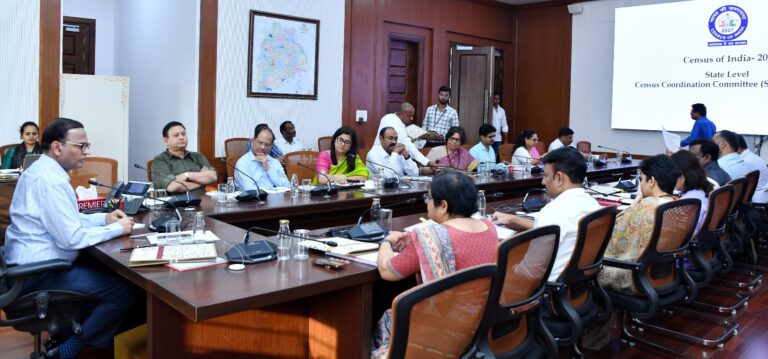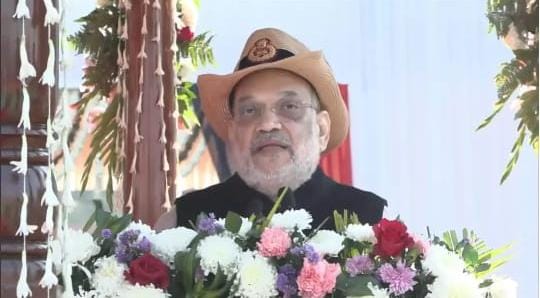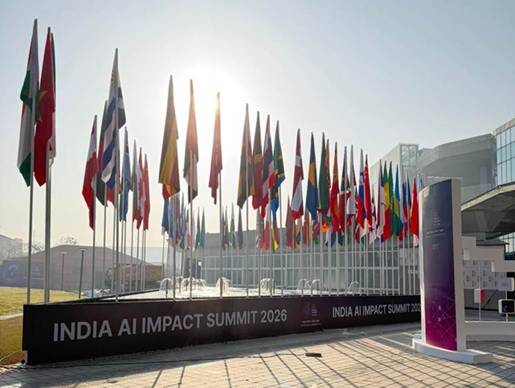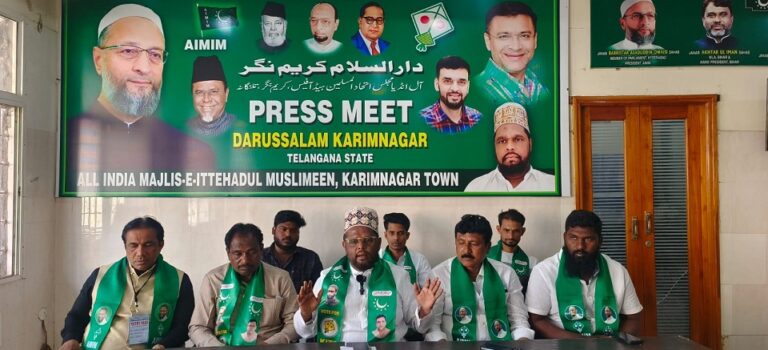
HYDERABAD, JULY 30, 2025: ICRISAT Director General Dr Himansh Pathak has signed a Memorandum of Understanding with the Kaveri University in the exchange of agricultural technology. Kaveri University Chancellor G.V. Bhaskara Rao, Vice Chancellor Dr. V. Praveen Rao, and Vice Chairman G. Pawan Rao signed the MoU.
The MoU with ICRISAT will benefit students, with the opportunity to work directly with scientists and gain excellent knowledge on various topics, and there are only 16 research centres like ICRISAT worldwide.

Speaking on the occasion, ICRISAT Director General Dr Himansh Pathak called upon the students to come forward for the development of the country in the agricultural sector and added that by adding advanced technology to agriculture and inventing various new equipment that will be useful to farmers, crop yield will be increased.
He said that it should help increase productivity and not only generate enough food income for India but also achieve development to the point of exporting it to the world.
Today, the education system is very busy. He said that everything is possible through the education system. He called upon the students to do real research in the field of agriculture and not just be satisfied with book knowledge.
He explained that there is only one such ICRISAT in India, and that it is in Hyderabad, and that the MoU with Kaveri University would be very beneficial for the students.
Speaking at the event, Chancellor G.V. Bhaskara Rao, Vice Chancellor V. Praveen Rao, and Vice Chairman G. Pawan Rao said that Kavery University is the first Agritech University in the country and the only one in the country with an agricultural university and agro-industries.
Stating that Kaveri University is the only Agritech University in the country, they said that students can continue their education and research directly in the agricultural fields and research centres, and that on the one hand, agriculture is combined with technology on the other, thereby contributing to the development of India.




They said that the university is ready to provide distinguished services to the Indian agriculture sector. As part of this programme, ICRIAT Director General Dr. Himansh Pathak visited various labs of the university and discussed the technological and agricultural aspects of the university.
He congratulated the faculty and management on this occasion, saying that it was surprising to visit the agricultural & Engineering Technology labs and see that they have such amazingly advanced equipment in just a year.
University Registrar B. Srinivasulu, Director of Student Welfare Dr. Harsha Rao, Dean of Agriculture Dr. A. Pratap Reddy, Dean of Technology Dr. Konda Srinivas, professors and students participated in this program and made it a grand success.
The Director General, ICRISAT was taken on a tour of the university’s cutting-edge research and teaching infrastructure, including: Artificial Intelligence in Agriculture Lab, IoT-enabled Smart Farming Modules, Drone and Robotics Experimental Units,
Soil Science and Agri-Informatics Labs, English & Communication Lab, Biotechnology, Molecular Biology, Crop Physiology, Post-Harvest Technology, and Plant Protection Laboratories.
He commended the university’s visionary integration of technology and agriculture, highlighting the experiential and application-driven learning model. He noted that Kaveri University represents a unique institutional model, combining an in-house academia–industry ecosystem and an AgriTech-focused curriculum that is tailored to address the evolving challenges of Indian agriculture.
He also visited Kaveri Seeds – Seed Testing, Speed Breeding Plots, and the Biotechnology Lab. At the Kaveri Seeds R&D Centre, Dr. Pathak reviewed: Seed quality testing and genomic analysis facilities, Advanced biotechnological processes for varietal development, Quality assurance and traceability systems linked to farmer advisories.
He appreciated the strong synergy between the university and industry, and acknowledged the role of this collaborative model in facilitating translational research and knowledge transfer to farming communities.
Interaction with Faculty
During a roundtable with the university leadership and faculty from the Schools of Agriculture, Agricultural Engineering, Data Science, and Agribusiness, Dr. Pathak emphasized:
The importance of interdisciplinary curriculum design, Capacity building in emerging technologies for faculty and students, promoting real-world impact-oriented research, particularly in the areas of climate resilience, digital agriculture, and resource-use efficiency.
Dr. Pathak delivered an inspiring address to students of B.Sc. (Hons.) Agriculture, B.Tech (AI & ML in Agriculture), postgraduate scholars, AgriTech entrepreneurs, and rural innovators. Key highlights of his address included:




